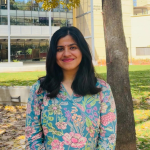Course Information
- 2023-24
- BAD301
- 5-Year B.A., LL.B. (Hons.)
- III
- Mar 2024
- Core Course
The Alternative Dispute Resolution (ADR) course is prescribed as a mandatory clinic course by the Bar Council of India. The course covers multiple methods of alternative dispute settlement ranging from the least-adversarial form, negotiation, to arbitration.
There has been a thrust on the development and utilization of alternative dispute resolution mechanisms for a variety of reasons – delays faced by parties resorting to litigation before courts of law in the country, the need for finality more quickly, etc. With the introduction of Section 89, Civil Procedure Code,1908; the Arbitration and Conciliation Act 1996; Legal Services Authority Act, 1987; Commercial Courts Act; CPA, 2019 and ADR methods under different legislations have been given a primary role in reducing backlog and promoting fast and affordable settlement of disputes. As such, the adoption of certain alternative dispute resolution mechanisms like arbitration has been enthusiastic by the various stakeholders of a commercial transaction. While the uptake of other processes like mediation has been relatively slower, the advantages of such mechanisms have more recently come to light. A combination of this realization and the Indian and global community seeking to strengthen mediation has meant that it has not only been spotlighted in recent times, it has also made its way into the lexicon of commercial parties and their lawyers. As such, the ADR course will introduce students to the different dispute resolution mechanisms that are recognized globally and in India for the settlement of a variety of disputes.
The ADR course will lead students through the evolution of these processes as well as recent developments in case law and legislation. The aim is to provide students with basic knowledge of ADR processes, so that students entering the workforce have a sound understanding of foundational theory and concepts and are equipped with the tools required to address nuanced questions of the law.



